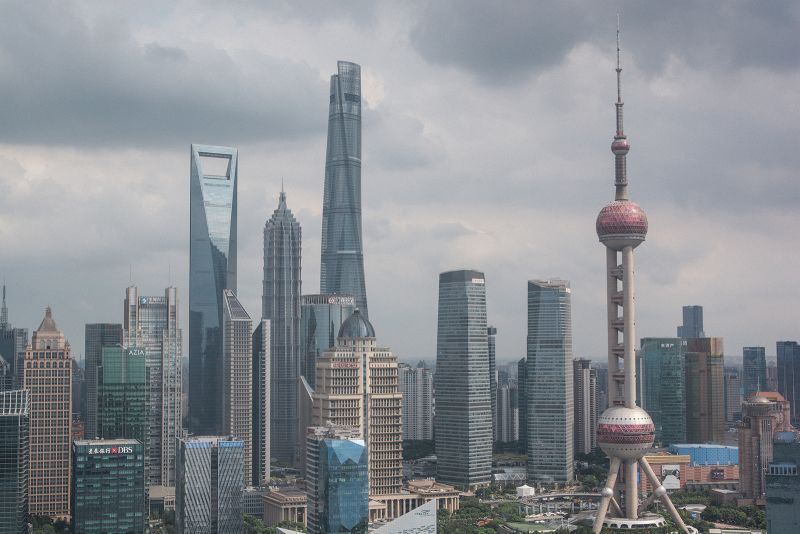Saudi Arabia and the United Arab Emirates have been invited to join the BRICS group of developing nations, marking the first expansion of the group in over a decade. South African President Cyril Ramaphosa announced that Iran, Egypt, Ethiopia, and Argentina will also be joining the group next year. All of the invited countries had previously expressed interest in joining. The membership will officially take effect on January 1, 2024.
The BRICS group currently consists of Brazil, Russia, India, China, and South Africa. Russian President Vladimir Putin congratulated the new members in a video message, stating that the bloc’s global influence will continue to grow. He also expressed his commitment to expanding the influence of BRICS and establishing practical work with new members.
Chinese President Xi Jinping called the expansion of the bloc “historic” and emphasized its determination to unite and cooperate with developing countries. Indian Prime Minister Narendra Modi also welcomed the expansion, stating that it will strengthen the bloc.
The inclusion of Saudi Arabia, the world’s largest crude oil exporter, in the same economic bloc as China, the world’s biggest oil importer, is a significant development. Additionally, Russia and Saudi Arabia, both members of OPEC+, will now join each other in a new economic bloc. The expansion raises questions about potential de-dollarization, as members may gradually switch to using currencies other than the US dollar for trade.
The expansion of BRICS comes at a time when some members, particularly Russia and China, are facing rising tensions with the West. Experts have suggested that including countries openly antagonistic toward the West, such as Iran, could further shift the group toward becoming an anti-Western bloc.
The BRICS group was originally formed in 2009 with four members and added South Africa the following year. It launched its New Development Bank in 2015. Despite differences in political and economic systems among its members, the group has persisted. However, some experts question the economic impact of adding more countries to the bloc.
The inclusion of Saudi Arabia and the United Arab Emirates has significant implications for the global oil market and geopolitical dynamics. The expansion of BRICS will undoubtedly shape the future of the group and its influence on the world stage.

What are the potential benefits of welcoming Saudi Arabia and the United Arab Emirates into the BRICS group?
Onfirmed that the group is looking forward to welcoming Saudi Arabia and the United Arab Emirates. He noted that the expansion will strengthen cooperation among the member countries and contribute to the economic growth and development of the region.
The decision to invite Saudi Arabia and the United Arab Emirates to join the BRICS group reflects the growing importance of these countries in the global economy. Both Saudi Arabia and the United Arab Emirates are major players in the oil industry and have demonstrated strong economic growth in recent years. Their inclusion in the group will enhance the group’s influence and expand its reach in the Middle East.
The addition of Iran, Egypt, Ethiopia, and Argentina further expands the representation of the BRICS group across different continents and regions. Iran, in particular, is a significant player in the oil industry and has vast natural resources. Egypt and Ethiopia represent the African continent, which is crucial for the group’s focus on promoting economic development in emerging markets. Argentina’s inclusion highlights the group’s interest in strengthening ties with Latin American countries.
The expansion of the BRICS group is expected to bring numerous benefits. The member countries will have a platform to enhance trade and investment opportunities among themselves, further boosting economic growth and development. Additionally, the members can collaborate on issues of common interest, such as climate change, security, and sustainable development.
The BRICS group has emerged as an influential force in the global economy since its formation in 2009. Its members represent about 40% of the world’s population and a combined GDP of around $18 trillion. The group has already established institutions like the BRICS New Development Bank and the Contingent Reserve Arrangement, which provide financial support for infrastructure projects and emergency situations.
With the inclusion of these new member countries, the BRICS group is expected to gain more influence and become an even more significant voice in shaping global economic policies. The expansion reflects the group’s commitment to promoting inclusive and sustainable economic growth and strengthening South-South cooperation.
The official membership of the new countries will begin on January 1, 2024. In the meantime, preparations will be made to ensure a smooth transition and integration of the new members into the group. The expansion of the BRICS group is seen as a positive step towards building stronger alliances and fostering economic prosperity among developing nations.



“Exciting to see the BRICS group expanding its influence and bringing more nations on board!”
“This is a significant move as it strengthens the economic and political power of the BRICS group. Looking forward to the potential benefits and collaborations among all the member nations!”